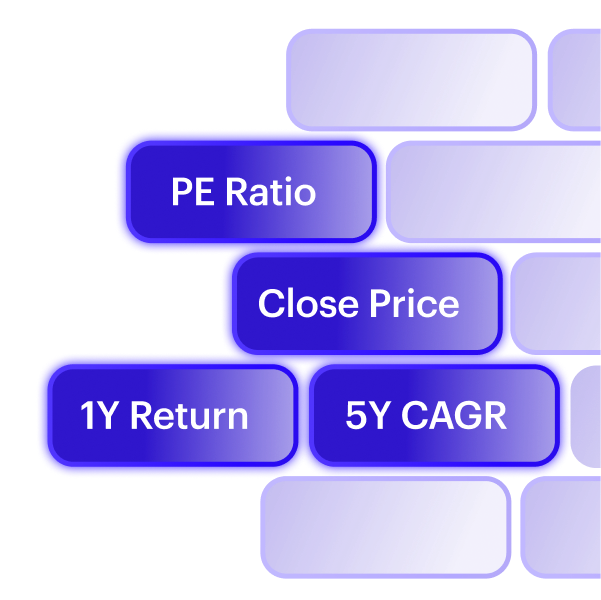Last Updated on Aug 8, 2023 by Anjali Chourasiya
A well-diversified portfolio can help you (investors) mitigate loss; even if one asset fails, there can be others in the portfolio to compensate for the loss and reap profits. smallcase is one such investment type with portfolio diversification as its key feature.
In this article, let’s learn about smallcases and which one you can look forward to in 2023, along with the expert views.
Table of Contents
What is a smallcase?
A smallcase is a basket of stocks and ETFs curated according to a strategy, theme or idea. Professional managers curate smallcases. Overall, smallcase is a different way to invest in stocks and ETFs. You can choose a smallcase depending on the theme of the smallcase and your investment goal.
smallcases you can look forward to in 2023
Here are five smallcases curated by professional managers.
1. Trends Trilogy smallcase
Arvind Kothari of Niveshaay curated the Trends Trilogy smallcase, a classic blend of the two main schools of thought in the equity markets- fundamental and technical analysis, giving you the best of both worlds.
Talking about the Trends Trilogy smallcase, Arvind says, “A company makes to the Trends Trilogy portfolio when the business trend, finance trend and price trend are aligned together. When the positive business environment gets reflected in the quarterly or yearly financial performance, supported and confirmed by price-volume charts, this is where a company makes to the portfolio.”
He adds, “Fundamental analysis helps us pick the right company, and technical analysis provides the correct entry and exit timings considering the earnings visibility. Most importantly, this blended approach helps us to avoid bias, build conviction and ride the trend for a long time. Hence, it’s a long-term portfolio unlike the general perception of trading when technical analysis is considered.”
2. Mi Evergreen smallcase
The central theme of this smallcase, curated by Alok Jain of Weekend Investing, is ‘asset allocation’. He says, “Asset allocation is important in investing, as it refers to how you divide your money among different asset classes. This can include stocks, bonds, cash, gold, real estate and other investments. The goal of asset allocation is to diversify your portfolio so that you are not overly reliant on any one type of investment. This can help to reduce risk and potentially increase returns over the long term.”
He adds, “Different asset classes tend to perform differently in different market conditions, so by diversifying your portfolio, you can potentially mitigate the impact of any asset class experiencing a downturn. For example, if you have a portfolio heavily weighted towards stocks and the stock market experiences a downturn, the value of your portfolio may decline significantly. However, if you have also allocated a portion of your portfolio to bonds, which tend to perform differently than stocks, the decline in the value of your stocks may be partially offset by the relative stability of your bond holdings.”
About his Mi Evergreen smallcase, Alok says, “Weekend Investing has a great strategy in Mi Evergreen that allocates 25% to Gold and rebalances it monthly along with allocation to large and mid-cap stocks, thus getting the best of both worlds as per the seasonality.”
Alok also says, “With this aim, we created the Mi Evergreen portfolio, a 20-stock portfolio picked from the top CNX200 stocks universe blended with a 25% allocation to Gold ETFs. The advantage of momentum strategies like this is that you do not have to scout for sectors or stocks. Still, the trusted and tested system itself will generate a portfolio that ensures large winners and small losers”.
3. Brand Value smallcase
Talking about Brand Value smallcase, Abhishek Jadon says, “A unique characteristic of the smallcase is the low volatility it brings along as it takes exposure to quality businesses with strong fundamentals. And it has stood the test of time. Even amidst an extremely volatile macro environment scenario, the smallcase was fairly stable compared to its market benchmark. We added a few new sectors to the smallcase in due course of time, to name a few – healthcare and restaurants. They’ve done well for us, while other sectors like beverages and automotive have done much of the heavy lifting.”
“In our quarterly rebalances, the focus remains on identifying new and viable options for the smallcase sectors and stocks, and we shall continue to do so. Brand Value is built on understanding the ‘Why’ behind a company’s operations rather than What and How. Once you understand a brand’s purpose, it becomes intuitive for you to connect with the brand. The brands we have in the smallcase are not just merely selling products; they are trying to create an impact in our lives,” says Abhishek.
He continues, “The ethos of the Brand Value smallcase is to house the best brands in India because when people love the brand, they buy its products no matter what. Brand Value was one of the best-performing smallcases in 2022, and our efforts continue to make it the best going forward.”
4. Omni Bharat Defence smallcase
Vikas Gupta of Omni Science Capital curated Omni Bharat Defence smallcase with the central theme of risk-reward, and he says, “While every stock in the portfolio has outperformed the benchmark in the last year, these stocks continue to remain priced below their intrinsic value, and given the growth outlook and improving fundamentals, they offer attractive risk-reward potential. We do not believe in buying a single stock.”
“One should take exposure through a diversified portfolio such as Omni Bharat Defence to better manage risk and benefit from the underlying defence growth vector. Each company has a unique capability in terms of being a manufacturer of combat aircraft, submarines, aircraft carriers, missiles, or warships. Hence, it is important to take a diversified exposure to benefit from the complete ecosystem”, says Vikas Gupta.
5. Mi India Top10 smallcase
Talking about the approach they follow at Weekend Investing, Alok Jain says, “At Weekend Investing, our approach has been to create strategies that are self-correcting in nature. By that, we mean whatever may happen in the markets over the long term, these strategies will self-correct and deliver results. Stocks that are fit to stay in the portfolio are held for a long time, and those that do not meet the criterion get pushed out with no emotional baggage or ambiguity of decision-making. This is akin to the Theory of the Survival of the fittest that leads to better outcomes over time.”
About the Mi India Top10 smallcase, Alok says, “One such amazing strategy is Mi India Top10 that selects the best 10 Nifty stocks each month to hold. It is a low churn strategy that ensures that the weakness in the Index is never to be held in your portfolio. At any given time, out of 50 stocks, you will have 20-25 stocks that outperform the Nifty and the rest underperforming. The strategy will try to keep you out of harm’s way by sticking the allocation to the stronger stocks and hoping that the momentum continues.”
He further adds, “Thus, we believe that the best top 10 stocks that will remain robust under any market conditions are constantly picked by Mi Top10, and there is no need to predict or guess what those should be.”
Note: The smallcases listed here are the author’s personal views but not recommendations.
Conclusion
Smallcases provide you with exposure to different market themes and strategies. It helps you invest in stock baskets that are well-diversified already. However, doing your own research and investing according to your financial goal and risk appetite is always recommended.
FAQs
1. Can we invest in more than one smallcases?
Yes. There is no limit to smallcases you can invest in. However, consider your investment goal and risk appetite before investing.
2. How long do we need to hold a smallcase?
There is no time limit for holding a smallcase. It is similar to any other investment; the investment period depends on the asset class of the smallcase and your investment goal.
- Best AI Stocks in India (2025): Artificial Intelligence Shares on NSE - Apr 15, 2025
- List of Top Fundamentally Strong Stocks in India for 2025 - Apr 11, 2025
- Best Debt Mutual Funds in NSE India Based on 5Y CAGR - Mar 17, 2025




